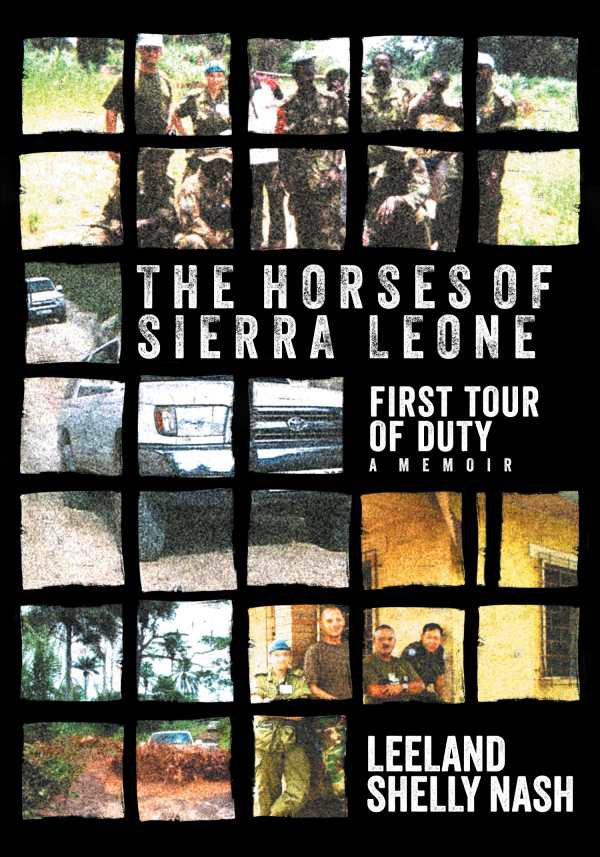The Horses of Sierra Leone
First Tour of Duty
Covering a UN deployment that involved disarming warring factions, nation-building, and helping to facilitate elections, The Horses of Sierra Leone is a sobering memoir.
In her memoir The Horses of Sierra Leone, Leeland Shelly Nash details her extraordinary experiences as the first woman to become a regular force combat arms officer and to deploy into a an active ongoing civil war as a UN military observer.
After several years of dealing with issues related to gender discrimination in Canada, Nash was sent to the United Nations Mission in Sierra Leone, where she served as a military observer, or “milob.” At the time, a decade-long conflict was coming to a conclusion. The country had no police force or first responders to speak of, and it was teeming with child soldiers.
On her first day in Sierra Leone, Nash witnessed a woman being gang-raped on the side of the road. Nash was unarmed and not allowed to intervene. Having to accept being nothing but a bystander to such atrocities was one of the difficulties of her new position. She also learned that some of her compatriots were complicit in the corruption around them, including the sexual abuse of women and children. She faced sexual harassment herself and remained aware that she was in danger because of her gender. All the while, she attempted to carry out the work of disarming warring factions and nation-building, including helping to facilitate elections.
While recounting the misdeeds of fellow officers, Nash demonstrates caution. She also only alludes to past traumas that had an impact on her through her deployment. This reserve leads to distance from the audience: it is clear that the details of key incidents are withheld. The prose is an exercise in restraint and is at times stiff and circumspect. No names are given. Rather, fellow military observers are referred to as “the Swede,” “the Scot,” “contingent senior,” and so on. The frequent use of acronyms leads to further remove.
More involving are the book’s accounts of character-building experiences on the subsistence farm where Nash grew up and in the Canadian wilderness, where she hunted, hiked, and kayaked down rivers. While in Sierra Leone, Nash often leans on these memories of her Canadian childhood for comfort. The sight of a bottle of orange soda evokes memories of accompanying an autistic cousin to the store, for example. Her upbringing, during which she learned to deal with unbroken horses and other animals, is credited with preparing her for her career in the military.
The Horses of Sierra Leone is a solemn memoir about facing formidable odds and a hostile military culture.
Reviewed by
Suzanne Kamata
Disclosure: This article is not an endorsement, but a review. The publisher of this book provided free copies of the book and paid a small fee to have their book reviewed by a professional reviewer. Foreword Reviews and Clarion Reviews make no guarantee that the publisher will receive a positive review. Foreword Magazine, Inc. is disclosing this in accordance with the Federal Trade Commission’s 16 CFR, Part 255.

